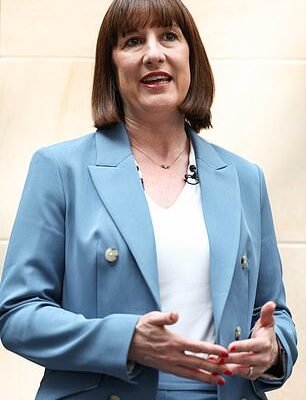Anna Bowes from Savings Champion, said: “As interest rates have risen significantly over the last few years, more and more people are breaching their personal savings allowance with far smaller amounts of savings.”
Isas are totally tax-free – so make use of these to protect your savings from the taxman.
Note there’s extra help for those on lower incomes, too.
The savings starting rate can offer an additional £5,000 to protect savings interest – you’ll get this full amount if you earn less than the £12,570 personal allowance.
It will then reduce by £1 for each £1 you earn over it.
Blind Person’s Allowance
This offers an additional personal tax allowance of £3,070 – plus the usual £12,570 – if you or your spouse or civil partner are blind or have severely impaired sight.
In other words, you get this amount in addition to the personal allowance.
As with the marriage allowance, any unused blind person’s allowance can be transferred to a spouse or civil partner.
Note that you do not receive it automatically; you need to claim it by contacting HMRC.
Maintenance Payment Relief
If you pay maintenance to a former spouse or civil partner, it’s worth being aware of this relief as it reduces your income tax.
It is worth 10pc of the maintenance you pay to your ex, up to a maximum of £428 a year.
Find out more here.
Property Allowance
This allowance is a tax exemption of up to £1,000 a year for those who get income from land or property.
With this relief, if your annual gross property income is £1,000 or less, you do not need to tell HMRC about the income.
If it’s above this level, you do have to declare it.
Rent-a-room scheme
If you let out a room to a lodger in the home you live in, you can benefit from the £7,500 “rent-a-room” scheme meaning you don’t have to pay tax on this amount.
This exemption is automatic if you earn less than £7,500, making this a simple way to reduce your tax burden.
Trading allowance
This is a tax exemption of up to £1,000 a year for individuals with income from either self-employment, or casual services (such as babysitting or gardening) – or hiring personal equipment (such as power tools).
Once again, if you earn less than £1,000, there’s no requirement to tell HMRC.
FAQ
What are my allowances if I am paid a pension?
If you receive a pension, you have the same personal tax allowance as everyone else, set at £12,570.
While there’s no longer a lifetime allowance on your total pension savings, there are three new pension allowances you should know about.
These includes the lump sum allowance, lump sum and death benefit allowance and overseas transfer allowance.
What about the state pension?
While state pension income is taxable, you only have to pay once your total income is above the personal allowance (currently £12,570).
With the full-flat rate state pension currently at just over £11,500 a year and the personal allowance frozen at £12,570, the state pension will take up the lion’s share of that tax-free allowance.





